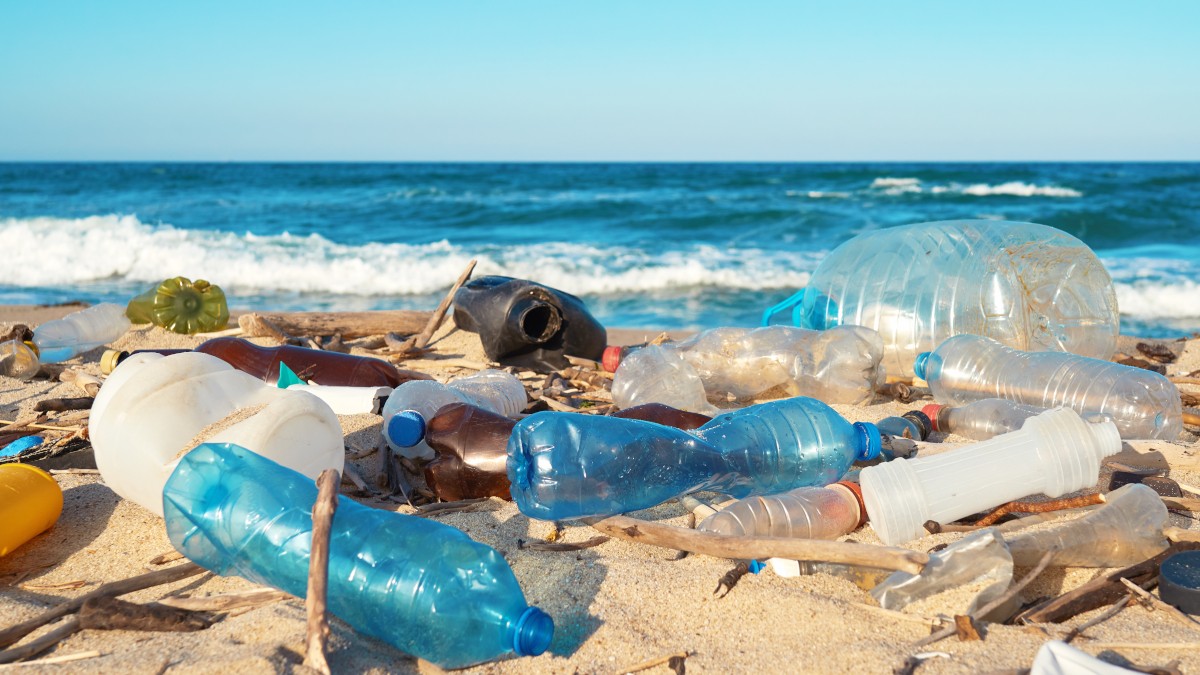75% of this trash consists of plastics, which hardly break down in the ocean. When it does slowly decompose, it becomes smaller and smaller. Particles that are eventually ingested as microplastics by fish, crustaceans, and other shellfish and thus also enter the human food chain. An estimated 80% of the plastic waste in the ocean was originally blown from land into rivers, lakes, and seas.
Since 2007, a customer of Busch USA has been producing fiber for the textile industry out of recycled plastic bottles. The plastic bottles are crushed, shredded, washed, melted, and processed into granules. The granules are melted into a liquid polymer and extruded through tiny openings in a spinneret, creating textile fibers and finally processed into yarn.
For this purpose, the company uses our R5 RA 0305 in two different processes. Six of them are applied in four extruder lines, with each line utilizing one to two vacuum pumps depending on process requirements. The R5 vacuum pumps are used for degassing through the extrusion process. This helps remove any unwanted contaminants, such as air or vapor, from the melted plastic and ensures a consistent high-quality product.
Another part of the production process utilizes eight R5 RA 0305 vacuum pumps in two solid-state polymerization lines that further degas the plastic pellets before final extrusion. Solid-state polymerization is carried out at high temperatures and zero oxygen levels with deep vacuum. The process promotes additional crosslinking of the polymers, forming more links between polymer chains. This results in a higher-quality product.

More and more plastic is polluting the world’s oceans and is becoming a danger to animals and humans. Source: marina_larina. Stock.adobe.com.
Recycling Plastic Bottles
Plastic waste blows into the waters and pollutes the world’s oceans. Animals die from it or eat tiny plastic particles, and plastic eventually enters the human food chain. A customer of our American colleagues produces fiber for the textile industry from plastic bottles that have been carelessly thrown into the environment.
Between 100 and 142 million tons of waste are in the world’s oceans. An estimated ten million tons more are added every year.